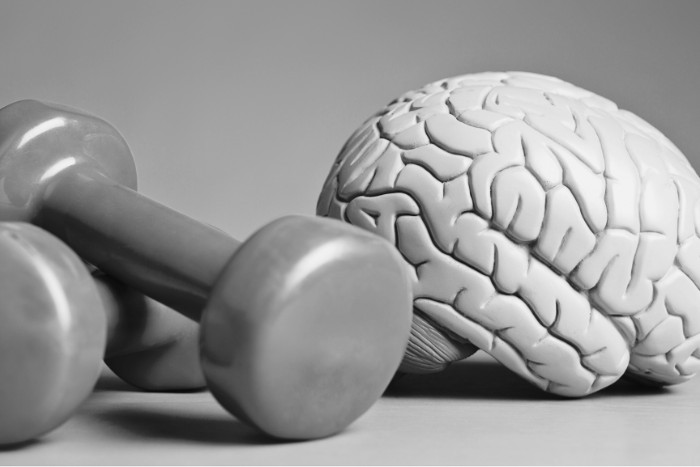Exercise isn’t just about sculpting muscles or breaking a sweat, it’s a powerful tool for enhancing brain health and mental clarity. From boosting your mood with feel-good endorphins to improving memory, focus, and creativity, physical activity works wonders for your mind. Let’s explore how exercise improves brain function, the best activities to try, and practical tips to seamlessly incorporate them into your lifestyle.

Photo by RapidEye from Getty Images on Canva
Exercise has remarkable benefits for the brain, both in the short and long term. Here’s what it does.
- Physical activity stimulates the production of endorphins – your brain’s feel-good chemicals – which help boost mood by reducing stress, anxiety, and depression.
- Exercise improves memory, focus, and problem-solving abilities by increasing blood flow to the brain. This delivers more oxygen and nutrients, enhancing mental sharpness.
- Exercise encourages the growth of new connections between brain cells and stimulates the production of brain-derived neurotrophic factor, a protein that supports brain health and learning.
- Regular activity can protect against cognitive decline and reduce the risk of age-related diseases like Alzheimer’s. It keeps the brain younger and more resilient.
- Exercise can help regulate your sleep patterns, which is essential for memory consolidation and overall brain function.
- Activities like walking or yoga can stimulate creative thinking by giving the brain time to relax and process information subconsciously.
Certain types of exercise are particularly effective for boosting brain function. Here are a few options that stand out.
- Aerobic activities like running, swimming, or cycling improve cardiovascular health, increasing blood flow and oxygen supply to the brain. These exercises have been linked to enhanced memory, attention, and learning.
- Lifting weights or resistance exercises can help release chemicals in the brain that promote cell growth and combat stress. They also improve focus and decision-making abilities.
- Yoga, tai chi, and other mind-body practices combine physical movement with mindfulness, reducing stress and improving brain function by enhancing focus and promoting neuroplasticity.
- Learning new dance moves combines physical activity with cognitive challenges, like memory and coordination, making it a fun way to engage your brain and body.
- Walking is simple but effective. A brisk walk, particularly in a natural setting, can boost mood, creativity, and cognitive performance.
- Activities that require strategy and quick thinking, like tennis or basketball, challenge both the body and the brain.
Starting a new exercise routine is exciting, and the key is to make it manageable and enjoyable. Here are 8 tips to starting a brain-boosting routine.
- Set clear goals
Decide what you want to achieve, better mood, sharper focus, or overall brain health. Having a goal gives you purpose and motivation. - Start small
Ease into it. Begin with short, manageable sessions like a 10-minute walk or a few simple stretches and gradually increase intensity and duration over time. - Mix it up
Incorporate different activities to keep things interesting. For example, doing aerobics like jogging a couple times a week, yoga or meditation on alternate days, and a fun activity like dancing or hiking on the weekend. - Create a schedule
Pick specific days and times for your exercises and treat them as appointments. Consistency is key for building a habit. - Combine activities
Make use of your time efficiently. For instance, you could listen to podcasts while walking or invite a friend to join you for a game of tennis. - Stay accountable
Keep track of your progress using an app, journal, or calendar. Sharing your goals with a friend or joining a group can also help you stay on track. - Have fun
Choose exercises you genuinely enjoy. If it feels like a chore, it’s harder to stick with it. Play around with new classes, hiking trails, or sports to find your favorites. - Take rest days
Recovery is as important as exercise. Give your body and mind time to rejuvenate.
Incorporating exercise into your life isn’t just an investment in physical health, it’s a commitment to a sharper, healthier brain. From enhancing mood and cognitive function to fostering creativity and lifelong learning, exercise offers unparalleled benefits for mental wellbeing.
Get ready to move smarter, not just harder!





Leave a Reply